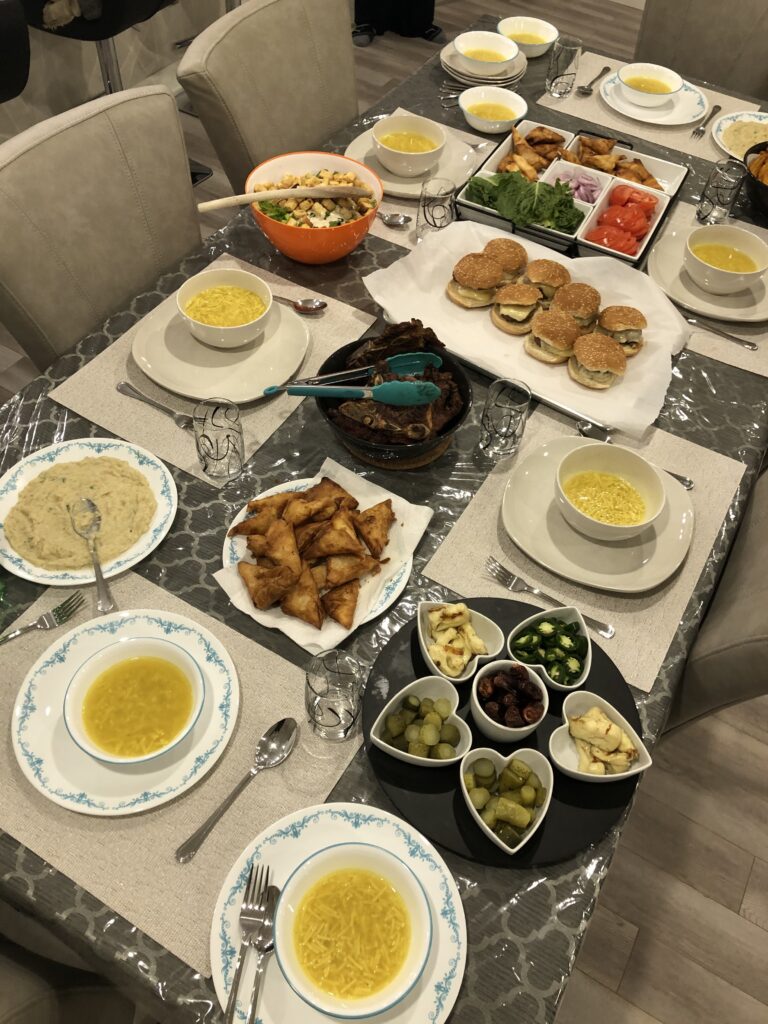Muslim people have two holidays a year which are called Eid; the first Eid is Eid Al Adha which translates to the holiday of sacrifice. On this holiday, Muslim people are required to sacrifice an animal (usually a sheep) and donate as much of it as possible to poor families in the community. The second Eid is called Eid Al Fitr, which translates to the festival of breaking the fast. This Eid comes on the first three days following the ninth month of the Islamic calendar, the month of Ramadan.
What is Ramadan?
Ramadan is a special month where Muslim people are taught about the importance of self-control and empathy for the less fortunate. For the duration of the month, Muslims are required to fast from sunrise to sunset by refraining from eating, drinking, or smoking. Ramadan is also a very special holiday for families to reunite and connect with one another. Many families gather at sunset for Iftar (breakfast) and make a prayer, sharing how their days went or any challenges with their fasting. Eid Al Fitr begins at sunset on the last night of Ramadan at the first sighting of the crescent moon. On this holiday, the adults give the children pocket money as a reward for their perseverance throughout the month; children are then taught how pleasing it is to receive gifts. When those children grow up, they then give the pocket money to the next generation, which teaches the now adults how rewarding it feels to gift.

What is the purpose of Ramadan?
This holiday is full of life-long lessons about empathy, patience, and self-control. It is a known fact that when people are hungry, they usually get angry and impatient; in Ramadan, it is very important not to commit any sins, such as getting angry or speaking negatively towards others, making it a great opportunity for self-control and self-reflection. Empathy is a very important emotion for humans to be able to connect with one another, and Ramadan is a prime example of exercising empathy. By fasting from sunrise to sunset every day for 30 days, Muslims are reminded of the struggle of doing normal day-to-day activities such as going to work, school or running errands on an empty stomach becomes much more challenging. Not everyone has access to food and clean water, so we must not take it for granted and share it with others as much as we can.
How does Ramadan affect non-Muslim people?
Ramadan is about bettering oneself, so if you are friends with a Muslim person, you may notice that they are quieter during the month or more thoughtful. This is a great opportunity for you to get closer to your friend. You can listen to their concerns or give advice when they ask. Alternatively, if your Muslim friend invites you over for breakfast during Ramadan, you should know that you are about to experience a very intimate gathering with a variety of delicious food. Ramadan is not exclusive to Muslim people–it is a part of the religion of Islam, but anyone can participate and try out fasting. It might result in learning something!






